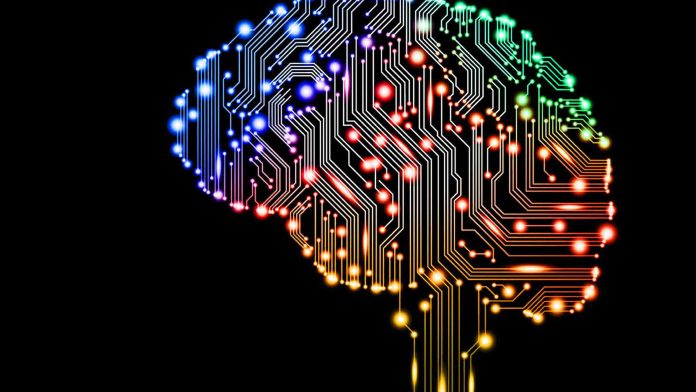This article was written by Hemang Mohanlal Doshi, pursuing the Personal Branding Program for Corporate Leaders Course from Skill Arbitrage, and edited by Koushik Chittella.
Table of Contents
Introduction
Good corporate governance and compliance are the true essence of a company’s success.
Hence, senior management and the board of directors are under constant pressure to adhere to rules and regulations, ensure compliance, and manage risk to operate ethically and transparently. As businesses are expanding around the globe, complexities are increasing and making it difficult to operate businesses under one umbrella. In this scenario, the introduction of AI is a game-changing event all together! AI tools can help analyse vast amounts of data, automate routine tasks, and help predict market trends and patterns accurately and efficiently. AI is thus an intersection junction for corporate governance and compliance in today’s dynamic market.
Corporate governance: meaning
Corporate governance can be defined as “the combination of rules, processes, or laws by which businesses are operated, administered, regulated, or controlled.” These are the ways in which companies are directed and controlled. All the internal and external factors that directly or indirectly affect positively or negatively the interests of stakeholders, customers, suppliers, government acts, and regulation or management itself are primarily the key areas of corporate governance. In short, corporate governance is a system created by a set of rules and practices to operate a company. It is the responsibility of the company’s board of directors. The basic principles of governance are accountability, transparency, fairness, and responsibility.
Compliance is about adhering to various legal and regulatory requirements and industry standards while managing a company’s policies. It is critical for a company to meet its regulatory obligations to avoid legal penalties, financial losses, and reputational damage.
Corporate governance and AI
AI technologies like machine learning, natural language processing, and robotic process automation can recognise patterns and trends, help in making decisions, and can even learn from experience enabling machines, systems, and applications to perform tasks that would normally need human intelligence and logical reasoning. Thus, “automation” of those tasks would be the intersection point for corporate governance, compliance, and AI.

By automating those tasks, we can see improvement in efficiency, accuracy, and risk at the organisational level as human errors are eliminated and reports, documents, and matrices are automatically generated.
Different types of AI systems
AI systems that can be integrated into corporate governance and compliance with varying degrees of autonomy and interaction with human decision-makers. Following are the various AI systems that can be utilised.
| AI System | Description | Role in Corporate Governance | Examples |
| Assisted AI | Basic and has limited autonomy. Supports straightforward tasks and helps decision-making by humans. | AI supports performing routine tasks. Humans are the decision-makers; | Apple’s Siri |
| Augmented AI | Advanced AI helps humans make better decisions through detailed analysis and recommendations. | AI provides detailed insights and suggestions; humans make the final decisions. | IBM’s Watson |
| Amplified AI | This is a hybrid system where AI and humans work together in decision-making. | AI and humans contribute in decision-making; AI offers data-driven insights, while humans apply their judgement. | N/A |
| Autonomous AI | AI with the capability to make independent decisions without human intervention. | AI can replace human managers in decision-making processes. | Used in vehicles by Waymo, Tesla |
| Autopoietic AI | The most advanced AI system, capable of evolving its decision-making processes and surpassing human abilities. | AI dominates decision-making; it is just theoretical and science fiction. | N/A |

AI tools for corporate governance and compliance
Today, various AI tools available in the market are transforming the way corporate governance and compliance processes are followed with high efficiency, accuracy, and proactiveness. As AI continues to grow and evolve, its usage will grow. The following table shows some of the AI tools available for automating corporate governance and compliance tasks.
| AI Tool | Application | Example |
| Natural Language Processing (NLP) | Analyses and interprets large volumes of unstructured data for opportunities and threats. | IBM Watson for analysing governance documents. |
| Machine learning (ML) algorithms | Identifies risks and compliance breaches, and even detects fraud. | ML models can monitor financial transactions for fraud and irregularities. |
| Robotic Process Automation (RPA) | Automates routine tasks like data entry and compliance monitoring. | RPA tools gathering datafor compliance reporting.UiPath can generate compliance reports. |
| AI-Powered Analytics | Analyses large datasets to track performance and identify governance improvements and issues. | AI integrated with Tableau or Microsoft Power BI capabilities. |
| Automated decision-making systems | Assists in data-driven decision-making by providing recommendations. | Aiden.ai for optimising decision-making processes. |
| Sentiment Analysis Tools | Gauges and measures stakeholder sentiment from social media sites and public forums. | Lexalytics or Brandwatch for analysing public perception. |
| Risk Management Software | Identifies, assesses, and manages risks effectively. | RiskWatch or LogicManager for continuous risk monitoring. |
| AI-Driven Auditing Tools | For detecting anomalies and errorsin auditing processes. | MindBridge AI Auditor for financial data analysis. |
| Virtual Assistants and Chatbots | Supports governance by providing needed information and compliance-related queries. | Google’s Dialogflow |
| Blockchain Integration with AI | Improved transparency and accountability in governance by automated verification. | AI-driven smart contracts can automatically apply rules and regulations for compliance and governance. |
| AI-Powered Compliance Monitoring | Continuously monitors regulatory changes and alerts companies. | Compliance.ai |
| Automated Reporting Tools | Generates real-time reports on time and with high accuracy. | Wolters Kluwer’s OneSumX |
| Predictive analytics | Forecasts compliance issues based on historical data and market trends. | SAS Compliance Solutions |
Key benefits of using AI in corporate governance and compliance
Although the benefits of using AI in corporate governance and compliance are enormous, the following are the few key benefits:
- Enhanced decision-making using AI
Traditionally, decision-making was based on human intuition and judgement with limited access to accurate data, processes, and systems. Hence, all the decisions were prone to error and fault, resulting in significant financial losses and missed business opportunities. With integration of AI with advanced analytics and machine learning:
- Vast amounts of data can be analysed to find hidden patterns and trends beneficial to the company.
- Real-time monitoring of KPIs, KRAs, and OKRs is possible.
- Predictive analysis can help boards make proactive decisions instead of reactive decisions.
- AI simulation can help predict outcomes of different strategies and models in real-time.
- Improved risk management
With the integration of AI, advanced algorithms, and data analysis, companies can manage risk more effectively as it becomes easier to identify and mitigate risks. AI can help companies to:
- Monitor internal and external sources to analyse various datasets to identify risks and predict their likelihood of occurrence.
- Help assess the financial losses occurring from the risks and their impact on organisational strategy.
- Provide more insights to mitigate risk and reduce potential damages early.
- Regulate Compliance
AI can monitor and regulate compliance through automation and alert mechanisms.
- The compliance process can be streamlined by automation. Automated processes can monitor routine tasks and help in data collection and analysis. Reports and documents can also be auto-generated.
- Monitor and update relevant stakeholders for compliance issues.
- Monitor and update any changes in compliance.
- Audit reports and financial statements can be validated with accuracy and free from human errors and faults easily.

- Promote ethical culture
With the usage of AI in monitoring compliance and corporate governance, a culture of transparency, responsibility, accountability, and fairness is automatically promoted, increasing the trust of investors, customers, and stakeholders.
- Cost Reduction
AI systems can automate routine tasks, monitoring activities, and reporting, reducing the need for human intervention. Thus, this helps in significant cost savings in labour, reducing errors and the risk of faulty reporting. Also, costs of fines and penalties incurred due to gaps in compliance and regulation are avoided completely.
Challenges in implementing AI
AI systems are software programs and applications that rely on accurate sources of data and relevant information to function seamlessly and accurately. These systems face the following major challenges:
- Data security and protection
AI systems rely heavily on the processing of huge amounts of data, including storage and accessing personal and sensitive information frequently. Data privacy and security therefore become the primary concern as sensitive information becomes vulnerable to cyber attacks. Hence, it becomes mandatory that AI systems comply with data privacy and security regulations like GDPR to avoid data breaches or unauthorised access.
- Bias AI algorithms
The outcomes of AI systems depend on the type of data sets used to train them. Any bias in AI algorithms or datasets can result in biassed outcomes leading to unfair or discriminatory practices, especially in departments like hiring, lending, and legal matters. Therefore, there is a need to train AI systems on diverse datasets. AI systems should be tested and audited periodically to ensure that they address all biases in the outcomes.
Suggestions
Although AI system usage and applications have enormous benefits for corporate governance and compliance, the following recommendations are suggested:
- AI systems application area:
As shown in the diagram of the intersection of AI, corporate governance, and compliance, “Automation” is the common intersection area. Therefore, it is recommended that all the tasks common to these areas should be automated first. “Automation” should be considered as an entry point for any organisation planning to leverage AI systems for the first time. By introducing AI systems for this area, the maximum benefits of AI systems can be easily reaped.
- AI system as board member:
The Companies Act 2013 should be amended to have AI systems as members of the board. As a member of the board, the AI system should be mandatorily part of the Audit Committee, as the AI system can scrutinise a vast amount of financial data and transactions, contributing significantly to the verification and validation of financial statements. As a member of the board of the Nomination and Remuneration Committee, AI systems can recommend and identify top talent and help compensate them accordingly. This will help retain top-notch talent in the company.

Conclusion
To conclude, this article covers various aspects of using AI systems in corporate governance and compliance. Benefits are enormous and, as such, will increase trust and confidence of stakeholders, customers, and investors. The AI system not only enhances efficiency and accuracy but also optimises risk management and opportunities. AI system, if added as a member to the board, will increase transparency and accountability as the overall system becomes averse to frauds and scams.
References
- https://www.allenandbrooks.com/2024/06/10/the-role-of-technology-and-ai-in-corporate-governance/#:~:text=Improved%20Compliance%20and%20Risk%20Management,regulatory%20changes%2C%20and%20internal%20controls
- https://medium.com/@kaushikvikas/the-role-of-ai-in-corporate-governance-and-compliance-51b97c03720f
- https://www.linkedin.com/pulse/how-ai-transform-corporate-governance-new-era-christian-poloczek/
- https://papers.ssrn.com/sol3/papers.nacfm?abstract_id=4143846
- https://www.mca.gov.in/Ministry/pdf/CompaniesAct2013.pdf
- https://research.aimultiple.com/ai-governance-tools/
- https://www.centraleyes.com/top-ai-compliance-tools/
 Serato DJ Crack 2025Serato DJ PRO Crack
Serato DJ Crack 2025Serato DJ PRO Crack










 Allow notifications
Allow notifications


